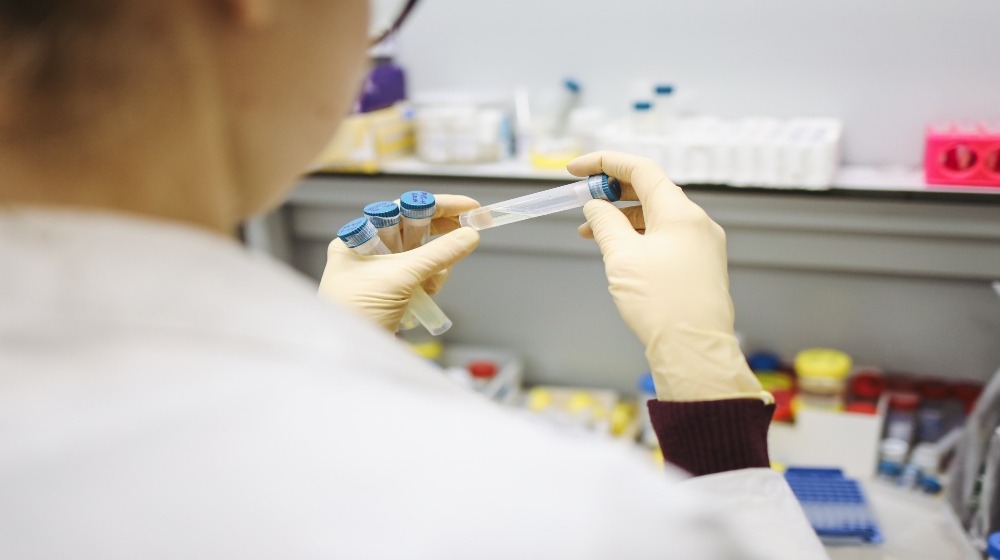News
US Orders 100M Coronavirus Vaccines

US orders 100M coronavirus vaccines to secure for the Americans. Operation Warp Speed scored another deal. The Department of Health and Human Services announced a deal with Pfizer/BioNTech to supply the US with 100 million Covid-19 vaccines worth $1.95 billion. The group's experimental vaccine has shown promising results during earlier trials. It is set to enter late-stage testing later this month.
$2B Deal With Pfizer/BioNTech
Trading after the announcement spurred both Pfizer and BioNTech. Pfizer (PFE) shares climbed 5.10% to close at $38.56 during Wednesday's trading. BioNTech (BNTX) rose higher at 13.72% and ended at $104.17.
The HHS agreement comes in the wake of the vaccine's success in recent trial runs. Early-stage studies showed the vaccine producing high antibody levels in patients. It also produced little to no side effects. Upon approval and delivery, the HHS will give out vaccines to Americans free of charge.
Related Article: El-Erian: Investors Must Prepare For A ‘Reckoning’ In The Markets
Operation Warp Speed
The latest Pfizer/BioNTech signing is part of Operation Warp Speed. The speedy sounding government program aims to ensure the US gets coronavirus vaccines as soon as they become available.
Apart from the signing, the HHS also secured agreements with various pharma companies. Earlier, the HHS announced a $1.6 billion deal with Novavax for 100 million doses by January. It also supported Johnson & Johnson's candidate with a $456 million investment. Another frontrunner, Moderna, received $486 million in April. AstraZeneca's candidate drug developed with Oxford University received a $1.2 billion infusion. The government gave Emergent Biosolutions $628 million to expand domestic manufacturing capabilities. These deals help HHS ensure that the Americans will be among the first to receive vaccines.
Vaccine Costs and Deployment
The $1.95 billion Pfizer/BioNTech deal does not include research and development. It does contain an option for the government to order an extra 500 million doses. Earlier agreements signed with the HHS covered testing and scaling manufacturing. Based on the contract, the estimated cost for a single dose is $19.50, which is near the cost of a flu shot.
There is no concrete plan yet for the distribution of the vaccine once it arrives in the US. Experts believe that the initial batches will go to frontline health workers. Next would be essential workers in the food, retail, and transportation sectors.
During the 2009 H1N1 outbreak, vaccine shots came via the children's vaccination program. According to Phyllis Arthur, vice president for infectious diseases and diagnostics policy at the Biotechnology Innovation Organization, the coronavirus vaccine could also follow a similar path. She advised adjusting distribution to ensure high-risk populations get served.
Process Disruption
A typical vaccine development program usually takes years to complete. The rigid trial phases take many months, with many prospects failing at this point. Manufacturing concerns usually get addressed only after the vaccine passes trials.
Dr. Albert Bourla, chairman and CEO of Pfizer echoes the fast track process. He said: “We’ve been committed to making the impossible possible. “We made the early decision to begin clinical work and large-scale manufacturing at our own risk to ensure that product would be available immediately if our clinical trials prove successful and an Emergency Use Authorization is granted.
Advancements In Vaccines
The race to produce a coronavirus vaccine has cut a lot of turnaround time. Advances in vaccine technology also helped improve speed up the process. Bankrolls from governments and investors also made things easier. The urgency brought by the pandemic made regulating agencies more lenient. Given the continued rise in cases, agencies may issue an Emergency Use Authorization.
To further shorten the development cycle, manufacturers have started tinkering with their plants. Even without the lack of approval, facilities are already anticipating mass production. Pfizer Chief Business Officer John Young said their company is pulling out all the stops. He said: “We’re bringing all the resources to bear that we possibly can to try and be a part of a solution to what is a global pandemic. The world is going to need a lot of vaccines.”
Young added that they are doing unprecedented action. He said that “the only way you can move at this kind of speed—is to do so many stages over your development and manufacturing process in parallel, rather than doing them sequentially.”
By placing its bets on vaccine frontrunners, the government made a shrewd move. It locked up initial supplies with pre-sell prices. No matter who comes up with the product first, the US will get first pick: it paid for the privilege. And if the promised vaccine comes out later this year, America may yet emerge from the pandemic a winner. This early, the markets are already celebrating.
From CNBC: Trump applauds agreement with Pfizer and BioNTech: ‘We think we have a winner'
During Wednesday’s news conference at the White House, President Donald Trump applauds the HHS deal with Pfizer and BioNTech, and says he is confident about the agreement: “We think we have a winner.”















